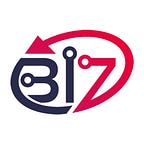How to Create a B2B Marketing Campaign?
Marketing is an essential function of any organization. It doesn’t make any difference whether your potential customers are individuals or different businesses.
In any case, business-to-business goliaths like Salesforce, Microsoft, and Oracle realize that marketing to different businesses is a complex endeavor: there might be various decision-makers and layers of endorsement included. In any case, toward the day’s end, B2B marketers are as yet working with people, not undefined business entities, so the core principles of marketing remain constant.
Business to Business (B2B) Marketing
B2B marketing, short for business-to-business marketing, alludes to the marketing of products or services to different businesses as opposed to individual consumers.
Marketing to the end consumer is known as B2C marketing, and B2C brands incorporate organizations like Walmart, Starbucks, and Apple. This distinct target market influences each part of a B2B organization’s marketing plan-from the underlying brand strategy to the extensive sales cycle.
Inside the umbrella class of B2B marketing, there are two methodologies: lead-based marketing and account-based marketing.
Lead-Based Marketing
Lead-based marketing is a broad way to deal with drawing in more customers where messaging is intended for a wide audience. It doesn’t make any difference regardless of whether they’re essential for a B2B organization’s target audience.
The lead-based marketing funnel has an extremely wide top significance this approach aims to catch however many leads as could be expected under the circumstances, regardless of how qualified they are as customers.
As this huge number of leads drop down the funnel, just a little rate might endure to the lower part of the funnel and convert into paying customers.
Account-Based Marketing
Account-based marketing is a tailored way to deal with high-value B2B customers, where every customer is treated similar to possess market. While lead-based marketing is a one-size-fits-all methodology, an account-based B2B marketing strategy is relationship-based.
Each account and purchaser’s journey is exceptional. A B2B organization chasing after an account-based marketing tactic targets explicit businesses that it needs to transform into customers and seeks after them with tailored strategies.
Along these lines, its funnel has a smaller top as potential customers are theoretically already nearer to conversion than those approaching through a lead-based approach.
B2B vs. B2C Marketing
The essential contrast somewhere in the range of B2B and B2C marketing is the audience: B2B offers to businesses, while B2C offers to individual consumers.
The fundamentals of marketing stay steady across B2B and B2C marketing, however, the particular strategies and tactics vary on the grounds that the audience is unique.
Decision-makers
By and large talking, in B2C, one individual settles on buy decisions. In B2B, there are frequently many individuals engaged with decision-production. Buy decisions must be sent up the administration chain for endorsement and may require team input.
The work associated with choosing to buy new programming for your sales team is by and large more noteworthy than what’s associated with the decision to purchase new eyeglasses.
Sales cycle
Since there’s just a single decision-creator included, the B2C sales cycle can be very short. There is, obviously, some variance long which regularly corresponds to the price tag of the thing being marketed. The B2B sales cycle is longer, as it typically requires layers of input and endorsement.
Brand strategy
B2C branding regularly addresses customer feelings. B2B branding, paradoxically, appeals to customers’ minds, utilizing information and formal contextual analyses to show how the item or administration is the reliable solution to a genuine or perceived pain point.
Marketing Plan
There is nobody size-fits-all marketing plan that ensures a good outcome for each B2B organization. All things considered, the fundamentals of making a marketing plan are broadly pertinent to most B2B organizations.
Target Audience
Your target audience is your ideal customer.
Many attributes could characterize them: industry, size of the organization, where they carry on with work, annual revenue, and years inactivity. Your target audience probably has an issue that your item or administration can address or a need it can meet.
Brand Positioning
Brand positioning assists your item and brand with standing apart from the competition. Ponder what issue your item or administration is tackling and what makes it novel as such, which pain points it addresses, and what makes it not quite the same as different solutions.
This could mean focusing on your superior quality, phenomenal customer administration, simplicity of implementation, or serious estimating. In the event that your item has many use cases, you might foster various renditions of your positioning.
